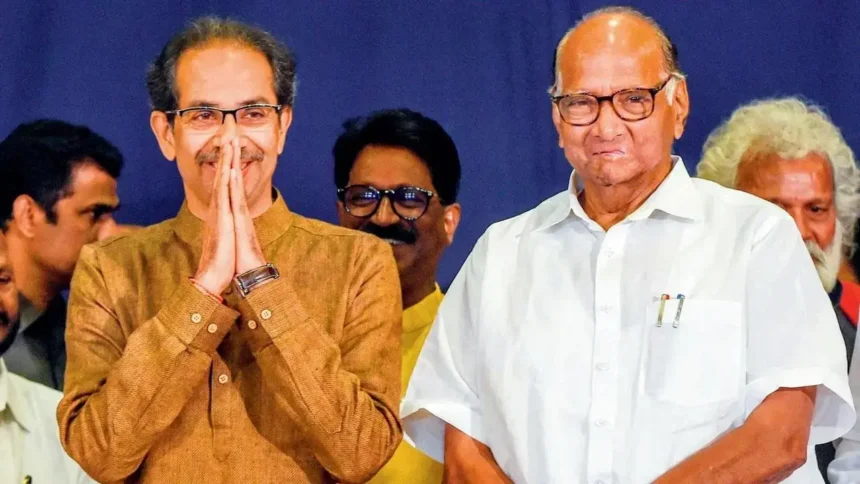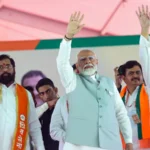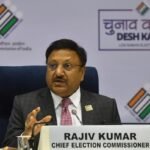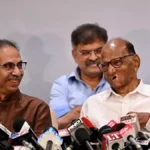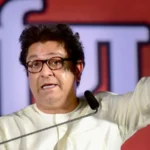Maharashtra’s political scene is still changing drastically as the state gets ready for the next round of assembly elections. Power dynamics and alliances have changed as a result of the latest Lok Sabha elections, with the Maha Vikas Aghadi (MVA) coalition emerging as a major factor. This alliance, which includes the Nationalist Congress Party (NCP), the Indian National Congress, and the Shiv Sena (UBT), has set itself up to strategically oppose the Bharatiya Janata Party (BJP), which is in power and is led by Deputy Chief Minister Devendra Fadnavis and Chief Minister Eknath Shinde.
MVA’s Comeback and BJP’s Obstacles
The MVA’s performance in the Lok Sabha elections has given it new life and demonstrated that it is capable of opposing the BJP’s hegemony. Even while the BJP is still quite powerful, its leadership and policies are coming under more and more criticism. The opposition alliance is trying to take advantage of any unhappiness among the electorate by concentrating on regional issues that appeal to voters, like social welfare initiatives and infrastructure development. The MVA’s approach is engaging the grassroots community to develop a direct connection with people, whereas the BJP depends on its well-established political apparatus and historical accomplishments.
The Maharashtra government’s budget for 2024–25 has come under fire recently, and these complaints have brought attention to the MVA’s plot to discredit the BJP. The budget has been branded as politically motivated by the opposition, who claim it puts appearance ahead of actual public needs. In an attempt to persuade hesitant voters as the elections draw near, this critique seeks to highlight the discrepancy between the promises made by the administration and the realities experienced by regular people.
Political Dynasties’ Ascent
Political dynasties are becoming more and more prominent in Maharashtra’s political landscape. Families like the Thackerays, Shindes, and Pawars continue to rule the land, which raises questions about the concentration of power within a small number of privileged individuals. Political representation is perceived as being more about upholding family legacies than it is about meeting the different needs of the populace as a result of this trend. This truth has been highlighted by the recent election results, which show that politicians from powerful political families frequently defeat upstarts.
Ajit Pawar’s leadership in the NCP has come under scrutiny following his underwhelming showing in the Lok Sabha elections, where he won just one of the four contested seats. His position has been further undermined by his incapacity to secure victory for his wife, Sunetra Pawar, over Supriya Sule in Baramati, a Pawar family bastion. Sharad Pawar, on the other hand, has maintained the NCP’s relevance by deft political manoeuvres, winning eight of the ten seats that were contested. This dynamic exemplifies the continuous battle within political families to strike a balance between leadership effectiveness and legacy.
Maharashtrian Identity Is Eroding
One important subject that is coming out of the current political conversation is the loss of Maharashtrian identity. Many Maharashtrians believe their cultural identity is at danger as a result of the inflow of numerous linguistic communities into urban regions like Mumbai. Political groups that have traditionally supported Marathi interests, such as the Shiv Sena and the Maharashtra Navnirman Sena, are finding it difficult to handle the issues brought on by a shifting demographic. Some voters have been disillusioned as a result of this change because they feel that the political narratives being put forth and their cultural identity are at odds.
Examining the Future: Maharashtra’s Risks
With Maharashtra’s assembly elections fast approaching, the stakes are bigger than ever. In addition to deciding the makeup of the assembly, the fight between the BJP and the MVA will also establish the direction for the state’s future leadership. Maintaining party unity and addressing voter frustrations will be critical to the BJP’s ability to hold onto power. In the meanwhile, the MVA’s ability to offer a unified substitute that appeals to a wide range of voters will determine how successful it is.
The outcome of this crucial election will be shaped by important players’ actions, public mood, and political tactics. Both the MVA and the BJP must negotiate a challenging terrain characterized by shifting allegiances and developing issues as the elections heat up. The weeks ahead will be crucial for both parties as they work to garner support and provide a vision for Maharashtra that is in line with the goals of the state’s diverse population.
Referral:
[1] https://maharashtraelection.in/maharashtra-unfiltered-raw-politics-daily-delivered-21-august-2024/
[2] https://maharashtraelection2024.com/maharashtra-unfiltered-raw-politics-daily-delivered-09-july-2024-3/
[3] https://economictimes.indiatimes.com/magazines/panache/nag-ashwin-breaks-silence-on-prabhas-arshad-warsi-controversy-asks-fans-to-stop-north-south-debate/articleshow/112757402.cms
[4] https://timesofindia.indiatimes.com/entertainment/hindi/bollywood/news/kangana-ranaut-opens-up-about-transition-from-actress-to-politician/articleshow/112747528.cms
[5] https://timesofindia.indiatimes.com/entertainment/telugu/movies/news/krithi-shetty-addresses-rumours-about-turning-down-a-project-with-chiranjeevi-shares-lack-of-sleep-on-the-sets-of-arm/articleshow/112743741.cms
[6] https://maharashtraelection.in/maharashtra-unfiltered-raw-politics-daily-delivered-31-july-2024/
[7] https://www.youtube.com/watch?v=njF4axeylWs
[8] https://e.thenews.com.pk/static_pages/8-22-2024/karachi/thenews.pdf


